Author Archive

Academic researchers work on problems they believe to be interesting and then publish their results. Particularly good researchers listen carefully to industry problems to find real problems, produce relevant work and then publish the results. True giants of academia listen carefully to find real problems, produce relevant results, build real systems that actually work, and…
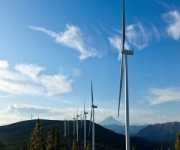
Greenpeace has focused on many issues of great import over the years. I like whales, don’t like shark finning, and it’s hard to be a huge fan of testing nuclear weapons on South Pacific islands. Much good work has been done and continues to be done. Over the past three to five years, Greenpeace has…

Zynga is often in the news because gaming is hot and Zynga has been, and continues to be, a successful gaming company. What’s different here is the story isn’t about gaming nor is it really about Zynga itself. The San Francisco gaming house with a public valuation of $2.5B was an earlier adopter of cloud…

IEEE Spectrum recently published a special report titled 50 Years of Moore’s Law. Spectrum, unlike many purely academic publications, covers a broad set of topics in a way accessible to someone working outside the domain but not so watered down as to become uninteresting. As I read through this set of articles on Moore’s law…

Back in 2005, I maintained a blog accessible only inside of Microsoft where I worked at the time. Having the blog internal to the company allowed confidential topics to be discussed openly, but over time, I found much of what I was writing about might be useful externally. And I knew, if I wanted to…
Back in 2007, the audacious RE<C project was started. The goal of RE<C was simple: make renewable energy less costly than coal and let economics do the hard work of converting the worlds energy producers to go renewable. I blogged the project in Solving World Problems With Economic Incentives summarizing the project with “the core…
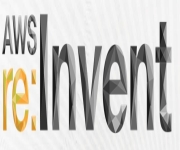
In the Amazon Web Services world, this has always been a busy time of the year. Busy, because, although we aim for a fairly even pace of new service announcements and new feature releases all year, invariably, somewhat more happens towards the end of the year than early on. And, busy, because the annual AWS…
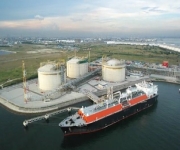
Waste heat reclamation in datacenters has long been viewed as hard because the heat released is low grade. What this means is that rather than having a great concentration of heat, it is instead spread out and, in fact, only warm. The more concentrated the heat, the easier it is to use. In fact, that…
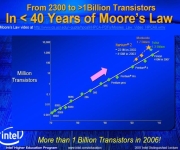
Dileep Bhandarkar put together a great presentation for the Computer History Museum a couple of weeks back. I have no idea how he got through the full presentation in under an hour – it covers a lot of material – but it’s an interesting walk through history. Over the years, Dileep has worked for Texas…
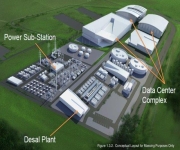
Over the last 10 years, there has been considerable innovation in data center cooling. Large operators are now able to operate at Power Usage Efficiency of 1.10 to 1.20. This means that less than 20% of the power delivered to the facility is lost to power distribution and cooling. These days, very nearly all of…
We all know that when designing and operating applications at scale, it is persistent state management that brings the most difficult challenges. Delivering state-free applications has always been (fairly) easy. But most interesting commercial and consumer applications need to manage persistent state. Advertising needs to be delivered, customer activity needs to be tracked, and products…
The internet and the availability of content broadly and uniformly to all users has driven the largest wave of innovation ever e experienced in our industry. Small startups offering a service of value have the same access to customers as the largest and best funded incumbents. All customers have access to the same array of…
It’s difficult to adequately test complex systems. But what’s really difficult is keeping a system adequately tested. Creating systems that do what they are designed to do is hard but, even with the complexity of these systems, many life critical systems have the engineering and production testing investment behind them to be reasonably safe when…
Most agree that cloud computing is inherently more efficient that on premise computing in each of several dimensions. Last November, I went after two of the easiest to argue gains: utilization and the ability to sell excess capacity (Datacenter Renewable Power Done Right): Cloud computing is a fundamentally more efficiently way to operate compute infrastructure….
It’s an unusual time in our industry where many of the most interesting server, storage, and networking advancements aren’t advertised, don’t have a sales team, don’t have price lists, and actually are often never even mentioned in public. The largest cloud providers build their own hardware designs and, since the equipment is not for sale,…
It’s not often I’m enthused about spending time in Las Vegas but this year’s AWS re:Invent conference was a good reason to be there. It’s exciting getting a chance to meet with customers who have committed their business to the cloud or are wrestling with that decision. The pace of growth since last years was…

Academic researchers work on problems they believe to be interesting and then publish their results. Particularly good researchers listen carefully to industry problems to find real problems, produce relevant work and then publish the results. True giants of academia listen carefully to find real problems, produce relevant results, build real systems that actually work, and…

Greenpeace has focused on many issues of great import over the years. I like whales, don’t like shark finning, and it’s hard to be a huge fan of testing nuclear weapons on South Pacific islands. Much good work has been done and continues to be done. Over the past three to five years, Greenpeace has…

Zynga is often in the news because gaming is hot and Zynga has been, and continues to be, a successful gaming company. What’s different here is the story isn’t about gaming nor is it really about Zynga itself. The San Francisco gaming house with a public valuation of $2.5B was an earlier adopter of cloud…

IEEE Spectrum recently published a special report titled 50 Years of Moore’s Law. Spectrum, unlike many purely academic publications, covers a broad set of topics in a way accessible to someone working outside the domain but not so watered down as to become uninteresting. As I read through this set of articles on Moore’s law…

Back in 2005, I maintained a blog accessible only inside of Microsoft where I worked at the time. Having the blog internal to the company allowed confidential topics to be discussed openly, but over time, I found much of what I was writing about might be useful externally. And I knew, if I wanted to…
Back in 2007, the audacious RE<C project was started. The goal of RE<C was simple: make renewable energy less costly than coal and let economics do the hard work of converting the worlds energy producers to go renewable. I blogged the project in Solving World Problems With Economic Incentives summarizing the project with “the core…

In the Amazon Web Services world, this has always been a busy time of the year. Busy, because, although we aim for a fairly even pace of new service announcements and new feature releases all year, invariably, somewhat more happens towards the end of the year than early on. And, busy, because the annual AWS…

Waste heat reclamation in datacenters has long been viewed as hard because the heat released is low grade. What this means is that rather than having a great concentration of heat, it is instead spread out and, in fact, only warm. The more concentrated the heat, the easier it is to use. In fact, that…

Dileep Bhandarkar put together a great presentation for the Computer History Museum a couple of weeks back. I have no idea how he got through the full presentation in under an hour – it covers a lot of material – but it’s an interesting walk through history. Over the years, Dileep has worked for Texas…

Over the last 10 years, there has been considerable innovation in data center cooling. Large operators are now able to operate at Power Usage Efficiency of 1.10 to 1.20. This means that less than 20% of the power delivered to the facility is lost to power distribution and cooling. These days, very nearly all of…
We all know that when designing and operating applications at scale, it is persistent state management that brings the most difficult challenges. Delivering state-free applications has always been (fairly) easy. But most interesting commercial and consumer applications need to manage persistent state. Advertising needs to be delivered, customer activity needs to be tracked, and products…
The internet and the availability of content broadly and uniformly to all users has driven the largest wave of innovation ever e experienced in our industry. Small startups offering a service of value have the same access to customers as the largest and best funded incumbents. All customers have access to the same array of…
It’s difficult to adequately test complex systems. But what’s really difficult is keeping a system adequately tested. Creating systems that do what they are designed to do is hard but, even with the complexity of these systems, many life critical systems have the engineering and production testing investment behind them to be reasonably safe when…
Most agree that cloud computing is inherently more efficient that on premise computing in each of several dimensions. Last November, I went after two of the easiest to argue gains: utilization and the ability to sell excess capacity (Datacenter Renewable Power Done Right): Cloud computing is a fundamentally more efficiently way to operate compute infrastructure….
It’s an unusual time in our industry where many of the most interesting server, storage, and networking advancements aren’t advertised, don’t have a sales team, don’t have price lists, and actually are often never even mentioned in public. The largest cloud providers build their own hardware designs and, since the equipment is not for sale,…
It’s not often I’m enthused about spending time in Las Vegas but this year’s AWS re:Invent conference was a good reason to be there. It’s exciting getting a chance to meet with customers who have committed their business to the cloud or are wrestling with that decision. The pace of growth since last years was…